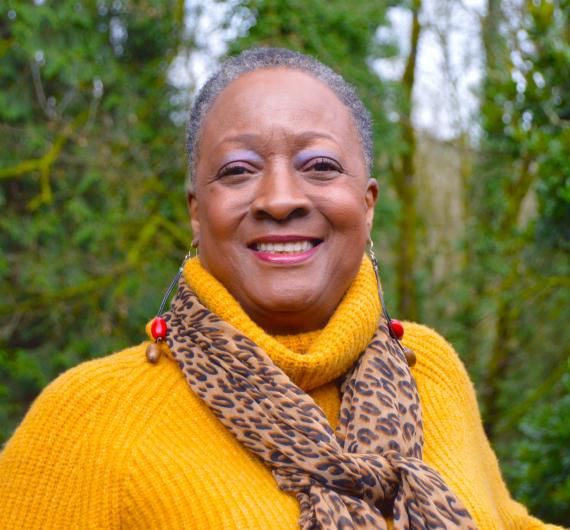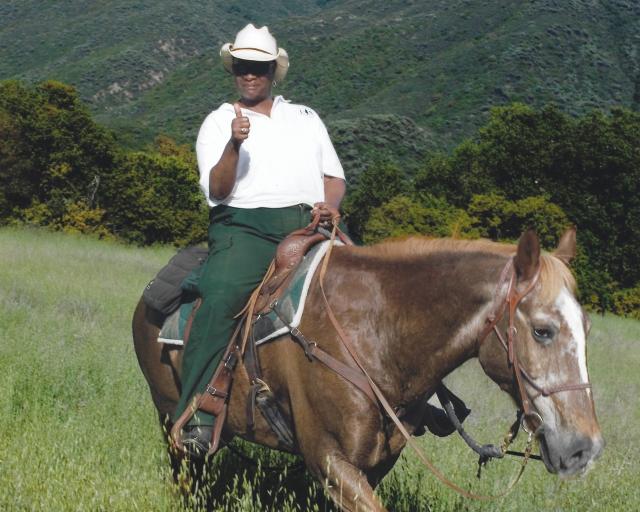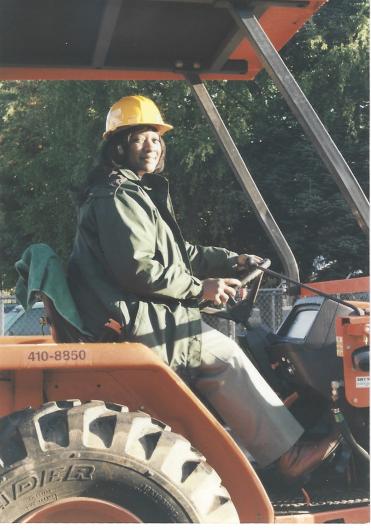You are viewing ARCHIVED content published online before January 20, 2025. Please note that this content is NOT UPDATED, and links may not work. Additionally, any previously issued diversity, equity, inclusion or gender-related guidance on this webpage should be considered rescinded. For current information, visit https://www.blm.gov/blog.
Road less traveled: A Black woman's journey in forest management

For Shakespeare’s Hamlet, the question was, “To be or not to be?” However, in 1994, the question for me was, “Do I work for the Forest Service or the BLM?” At that time, I had completed my academic studies at Oregon State University to qualify as a “forester.” After 20 years in administrative positions, the Forest Service offered me a line officer job, which was not to exceed 1 year. The BLM offered me the field manager position in Baker City, Oregon. I took the BLM job. It turned out that I was the first female African-American field manager ever hired in the BLM!
My career spanned from 1974 until 2007. During those 33 years, I can count on one hand the number of times that I was in a meeting in which there were other African-Americans. Even today, it is unusual to find an African-American female in a natural resource career, let alone as a forester. When I decided to go into management, I was definitely blazing a road less traveled by other African-American females. I had no role models. I wanted to be excellent in all of my endeavors, so I studied the professionals in the BLM.

Folks are always curious about my experiences—how I accomplished what I did and why I picked a career in natural resources when so few African-Americans were in the field. Most importantly, I did not dwell on the fact that I was an African-American female. If every move I made or every decision I delivered focused on that, I knew early on that I would spend a lot of energy on it, rather than focusing on being the best that I could be. The latter worked better for me.
To tell the truth, my biggest issue as an African-American in the agency and in my community—don’t laugh—was my hair. In some of the rural places where I worked, I could not find “Black” hair products. That said, I learned to do my hair myself—biggest issue gone! Smaller issues cropped up from time to time. My temporary assignment in Silver Lake, Oregon, comes to mind. I was driving through in my private vehicle, checking out the area before reporting to duty as the acting district ranger. When I got to the end of town, I turned around. As I was driving back, a policeman in the middle of the road directed me to stop. He came over to the car and said, “You lost?” I said, “No.” He said, “Well I saw you come through town and turn around; I thought you were lost.” I said, “No, I’m not lost. I’m the new temporary district ranger, and I was just checking out the area before reporting in.” The officer’s jaw dropped. I’m sure he didn’t realize how long it took him to speak, but it was well over a minute. Finally, he stumbled and said, “I . . . I thought you were lost. You . . . you know I know those folks over there. We . . . we play baseball with y’all. I’m, um, glad you’re not lost. I, um, guess you need to be on your way. You take care now.” In many of my first-time experiences meeting people, I found they were surprised, maybe even shocked, to find an African-American female living among them.

Most of my experiences confirmed that BLM and Forest Service managers are treated with respect. I found that if you communicate with and listen to people, and if you have a good reputation for knowing your job and making good decisions, people are willing to give you a chance. If you respect them, they respect you (regardless of color). I did not experience any outright prejudice. Employees and the public at large were more interested in how well I did my job than the color of my skin. The uniform and the position commanded respect. At the same time, the individual in the uniform had to earn that respect.
I attribute my success in the BLM to the professional employees who worked for me. Most were awesome and knew their jobs and the geographic area I was responsible for. The professional women in the BLM also contributed to my success. They are a close-knit group, and in joining them, I found advocacy, support, and advice. Many of these women have become lifelong friends of mine and have supported me on and off the job. Elaine Zielinski, who was a BLM state director in the Pacific Northwest, turned out to be my best role model.
I picked natural resources because I love the outdoors and being able to make decisions that make a difference in the environment and the communities we serve. I wanted one moment in time when I was more than I thought I could be. The BLM gave me lots of those moments that will last for an eternity.
Gloria Brown
Related Stories
- Dark Sky Week: 12 spectacular BLM stargazing sites
- BLM recreation sites available to all: Exploring accessibility on California’s public lands
- A day on patrol with BLM Arizona Ranger Rocco Jackson
- Overcoming challenges to move the BLM forward: Nikki Haskett
- BLM recreation sites available to all: Exploring accessibility on Arizona’s public lands
